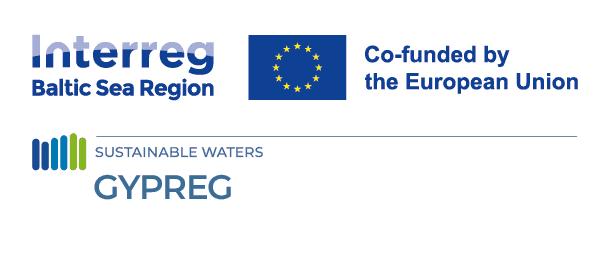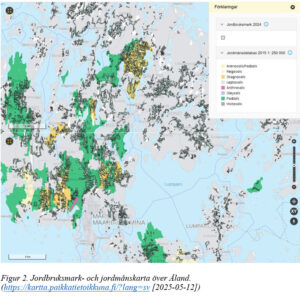
Interview Study in Åland : Farmers Support Gypsum Use
26 September 2025
A recent study by Sara Widén (Swedish University of Agricultural Sciences (SLU)) explores with qualitative interviews of seven farmers the potential of gypsum amendment as a water protection measure in Åland’s agricultural landscape.
potential of gypsum amendment as a water protection measure in Åland’s agricultural landscape.
Conducted within the framework of the Interreg-funded GYPREG project, the study focuses on farmers’ practical experiences and perceptions of gypsum spreading as a method to reduce phosphorus runoff, one of the key contributors to eutrophication in the Baltic Sea region.
Farmers Value Simplicity and Call for More Evidence
Widén’s research combines a literature review with qualitative interviews of seven farmers in Åland who participated in the GYPREG trials. The results show that farmers are generally positive toward gypsum spreading, especially because the material was provided free of charge and the logistics were managed by external project organizers. Most farmers applied gypsum to clay soils, which aligns with earlier studies identifying these soils as most responsive to treatment. While few negative effects were reported, some farmers raised concerns about possible nutrient imbalances in the soil.
The study highlights that gypsum spreading is perceived as simple and technically feasible, which supports its potential for broader adoption. However, continued external funding is seen as essential for long-term use. Farmers also expressed a clear need for more long-term research on soil health and environmental impacts to strengthen confidence in the method’s effectiveness. Widén concludes that gypsum application could become a valuable component of future water protection strategies in the Baltic Sea region, provided that its use is supported by ongoing research, policy backing, and local engagement.





